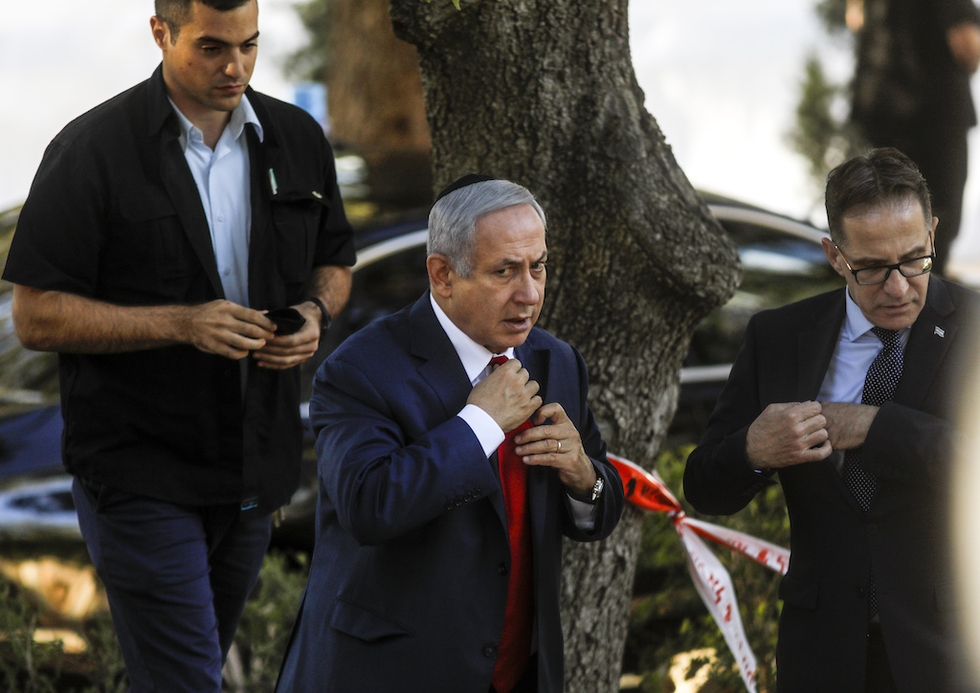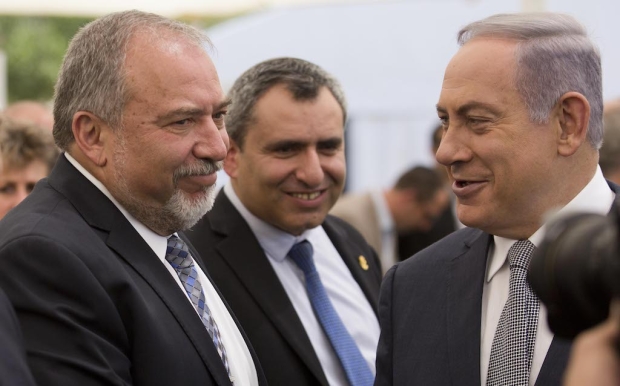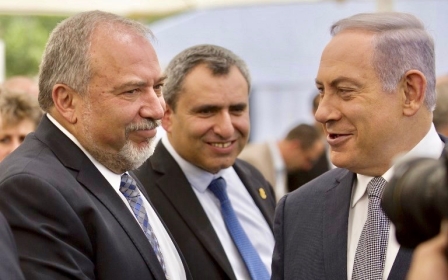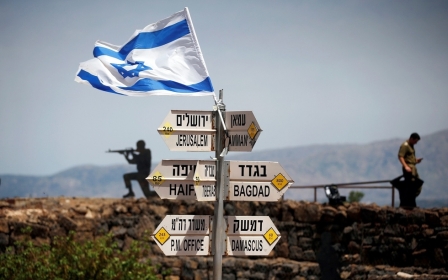Netanyahu in key talks to save coalition as he resists calls for snap polls

Israeli Prime Minister Benjamin Netanyahu resisted calls for snap polls on Sunday, saying elections now would be "unnecessary and wrong," ahead of what he called last-ditch talks to hold his embattled coalition together.
Netanyahu's right-wing coalition was thrown into crisis on Wednesday after defence minister Avigdor Lieberman's resignation over a controversial Gaza ceasefire deal, leading to speculation over whether early elections were inevitable.
After Lieberman's withdrawal along with his Yisrael Beitenu party, Netanyahu's government was left clinging to a one-seat majority in the 120-seat parliament.
Key coalition partners say that is unworkable, but elections are not due until November 2019.
There is no more government and we are heading towards elections. There is no other alternative
- Naftali Bennett, Education Minister
Finance Minister Moshe Kahlon, who heads the centrist Kulanu party, was the first coalition partner to call for an early election after meeting Netanyahu on Thursday.
Netanyahu planned to meet Kahlon, whose party holds 10 seats, at 6:30pm on Sunday for what he called a "last attempt" to keep the government together.
Seeking to delay calling elections, the prime minister made his case at the start of a cabinet meeting on Sunday.
"In a period of security sensitivity, it's unnecessary and wrong to go to elections," Netanyahu said.
He noted past instances when right-wing governments had called elections that did not turn out as they had hoped.
"We need to do whatever we can to avoid such mistakes," he said.
'I don't see a rabbit or a hat'
Kahlon has said he does not think it is possible to continue with the existing coalition.
"If [Netanyahu] pulls a rabbit out of his hat, we'll see," Kahlon told Israeli television on Saturday. "Meanwhile, I don't see a rabbit or a hat."
Education Minister Naftali Bennett of the far-right Jewish Home party, which holds eight seats in parliament, has demanded the defence portfolio as a way of keeping the government together.
Netanyahu says he will take it over at least temporarily rather than hand the key ministry to one of his main right-wing rivals, though a last-minute deal could not be ruled out.
On Saturday, Bennett told Israeli television that Lieberman had "collapsed the government".
"There is no more government, and we are heading towards elections," he said. "There is no other alternative."
Bennett declined to comment to journalists when entering Sunday's cabinet meeting, but Justice Minister Ayelet Shaked of his Jewish Home party said in a statement that making him defence minister was "the only justification" to keep the government together.
Netanyahu met Bennett on Friday, but conflicting reports emerged from their discussions.
'Senseless to continue'
A source close to Bennett said the two had agreed that "it would be senseless to continue" with the same coalition.
"They will set a date for elections when they meet with the [other] coalition partners on Sunday," the source said.
Within minutes, a statement from Netanyahu's Likud said that was wrong.
"The prime minister told minister Bennett that rumours that a decision has been made to go to elections are not correct," it said.
The crisis was set into motion with Lieberman's resignation on 14 November over the ceasefire a day earlier that ended the worst escalation between Israel and Palestinian armed groups in Gaza since a 2014 war.
Lieberman labelled the truce "capitulating to terror" and slammed Netanyahu's recent decision to allow Qatar to send millions of dollars in aid to the blockaded Palestinian enclave.
Israeli residents of southern communities hit by barrages of rockets from Gaza last week have also staged protests calling for tough action against Hamas, with which Israel has fought three wars since 2008.
Palestinians in Gaza have been protesting every Friday since 30 March as part of the Great March of Return.
The protest campaign calls for an end to the 11-year Israeli blockade on Gaza and for Palestinian refugees' right of return to the lands that their families fled during the establishment of the state of Israel in 1948.
Since the demonstrations began, the Israeli army has killed more than 200 Palestinian protesters and wounded thousands more, according to Gaza's health ministry.
An Israeli poll published after the ceasefire found 74 percent of respondents were unhappy with Netanyahu's handling of the escalation with Gaza and Hamas, which governs the besieged enclave, though it also showed his party would still easily win the most seats.
There has long been speculation that the premier may call elections before they are due in 2019, particularly with police having recommended charges against him in two corruption probes.
The attorney general is expected to announce a decision in the coming months whether to pursue charges against him.
Some analysts believe he would be better positioned to combat them with a fresh electoral mandate.
But Netanyahu would want to make such a move at the most advantageous time - not with public attention focused on the Gaza ceasefire.
New MEE newsletter: Jerusalem Dispatch
Sign up to get the latest insights and analysis on Israel-Palestine, alongside Turkey Unpacked and other MEE newsletters
Middle East Eye delivers independent and unrivalled coverage and analysis of the Middle East, North Africa and beyond. To learn more about republishing this content and the associated fees, please fill out this form. More about MEE can be found here.





